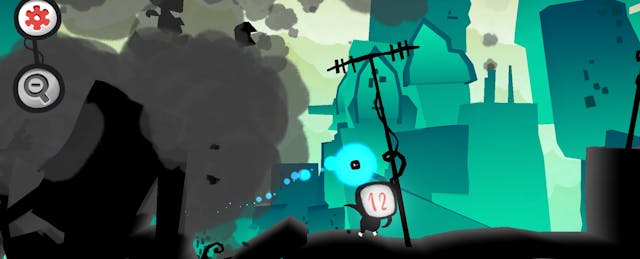A funny thing happened as Amplify started testing the education games it was developing for schools: Parents started asking where they could buy them.
Now they can get one.
Calling it an “experiment,” Amplify is today launching its first game on the App store--a math game called “12,” for $4.99. “This is new for us,” says Joel Klein, CEO of Amplify. “What we’re learning is that a lot of people who see the game think there’s something different here. We’re willing to be reflective and learn.”
Student players will get a chance to learn, too. To succeed at “12,” students must master the “order of operations,” one the prerequisites to conquering algebra. The game is a puzzle platformer with polished comic-book animations and graphics; a cheerful British narrator serves as your guide and drops hints. You play as the number "12" and find and collect numbers to change your value in order to unlock doors and clear obstacles.
And Amplify’s vice president for games, Justin Leites, hopes that “12” will be compelling enough that kids and even their teachers will want to play. Just for the fun of it.
“It’s hard to imagine teachers doing math problem sets from a text book for fun,” he says. By contrast, he hopes that “12” will draw in students (getting them to do more of what they shoudl learn in class) and adults, both parents and teachers, who can engage with students over the game.
“12” is one of a pack of about 30 new games on English language arts, math and science that Amplify will release in the coming weeks to schools. (So far, only “12” will be available for consumers.) The games supplement the digital curriculum that the company has developed.
To build the games, Leites says Amplify worked with about a dozen top commercial developers, shared details around Common Core standards and learning goals--and then gave the developers latitude to develop and integrate their games. (The developer of 12 is London-based Bossa Studios, whose portfolio includes “Surgeon Simulator” and the indie hit, “Thomas Was Alone.”)
Klein says that as Amplify has tested out game designs over the past year or two, it’s learned a lot and even jettisoned some concepts that didn’t quite work. And one big lesson: “You can’t ‘assign’ games,” Klein notes wryly. “If you do, it’s ‘homework.’”


